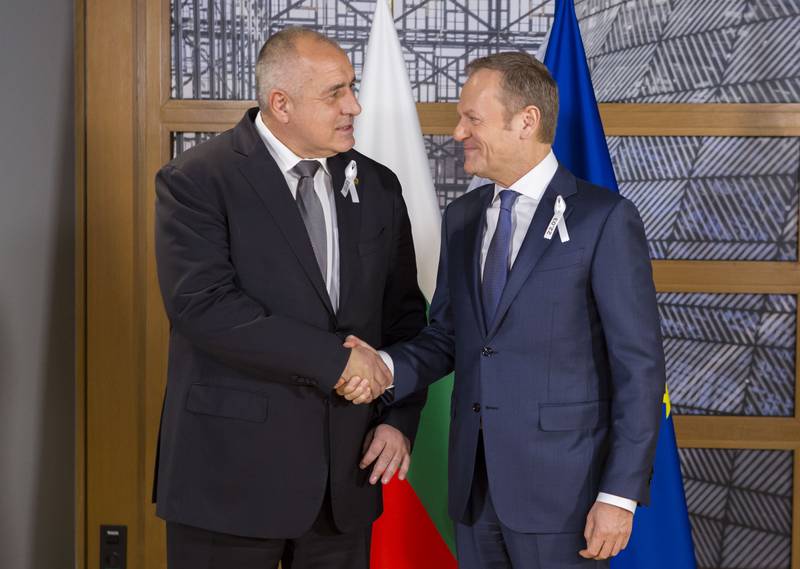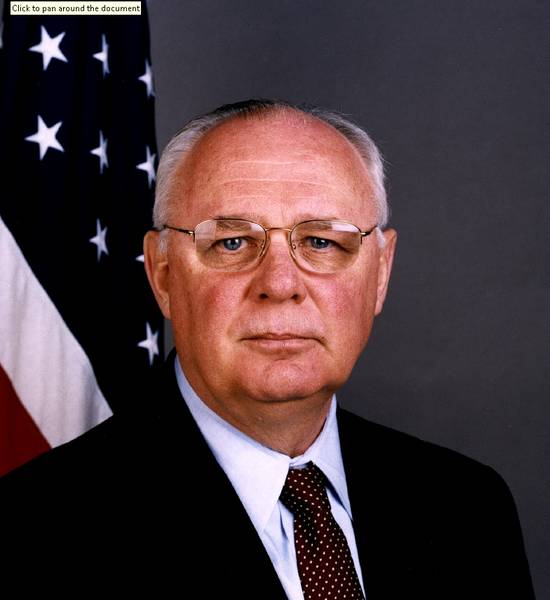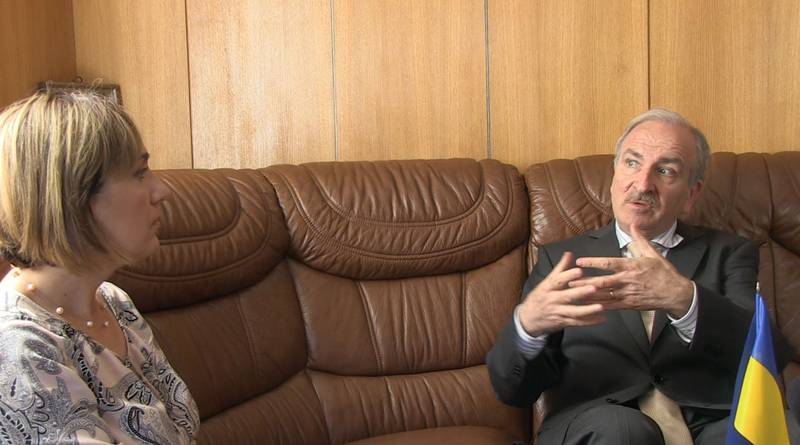EU Is Strong in Words, Weak in Action, Jumping from One Crisis into the Next
Adelina Marini, October 20, 2016
 It is for the first time since the beginning of the conflict in Syria that the EU uses extremely powerful language in an official document. Word is of the foreign ministers’ conclusions from Monday, which include clear accusations towards the Bashar al-Assad regime, but towards Russia as well. This, however, is just a game of words. On the other two important subjects on the ministers’ agenda – the EU global strategy and the situation in Bosnia and Herzegovina – the Union presents itself as extremely weak.
It is for the first time since the beginning of the conflict in Syria that the EU uses extremely powerful language in an official document. Word is of the foreign ministers’ conclusions from Monday, which include clear accusations towards the Bashar al-Assad regime, but towards Russia as well. This, however, is just a game of words. On the other two important subjects on the ministers’ agenda – the EU global strategy and the situation in Bosnia and Herzegovina – the Union presents itself as extremely weak.
"The EU is appalled by the deteriorating situation in Syria"
The conclusions of the Foreign Affairs Council on Syria of October 17 contain several important elements. The first one is that Russia is clearly pointed out and named as an accomplice to the military offensive in Aleppo, although it is clearly said that the Syrian regime bears the main responsibility for the protection of Syrian civilians. The second element is that the EU believes that the disproportionate and targeted attacks on hospitals, medical staff, schools and important infrastructure, as well as the use of cluster bombs and chemical weapons is equal to war crimes and urges that they be prosecuted. An entire chapter of the conclusions is dedicated on Russia, with an unequivocal suggestion about its role in committing war crimes. The third extremely important element of the document is the call of foreign ministers for a dialogue on finding a solution to the Syrian conflict, focusing on the future of Syria without the al-Assad regime. Here are some of the strongest messages in the conclusions:
"The EU condemns the continued systematic, widespread and gross violations and abuses of human rights and all violations of international humanitarian law by all parties, particularly the Syrian regime and its allies. The targeting of a UN humanitarian convoy on 19 September is a clear violation of international law, which requires full investigation. The EU looks forward to the findings of the internal UN board of enquiry. Those responsible for such violations and abuses must be held accountable".
"The EU deplores the Russian veto on 8 October to the UN Security Council Resolution to restore the cessation of hostilities and allow humanitarian access in Aleppo which was co-sponsored by all EU Member States".
"The Council calls on Russia, including as co-chair of the ISSG, to demonstrate through policies and actions all efforts, in order to halt indiscriminate bombing by the Syrian regime, restore a cessation of hostilities, ensure immediate and expanded humanitarian access and create the conditions for a credible and inclusive political transition. All those responsible for such breaches of international law, in particular of international humanitarian law and human rights law, some of which may constitute war crimes or crimes against humanity, must be brought to justice, including those committing crimes against religious, ethnic and other groups and minorities. Impunity for such crimes is unacceptable and thus the EU will continue to support efforts to gather evidence in view of future legal action ".

The Syria subject took most of the ministers’ time during their summit in Luxembourg, showing impressive unanimity among the ministers. Not all of them made statements after the summit, but those who did showed that the situation in Syria and Russia’s role there brought about a rare occasion of unity in the EU. British Foreign Secretary Boris Johnson went even further, transferring most of the responsibility for what is happening in Aleppo to Russia. “But I stress that the solution to this, of the future salvation of Aleppo, lies really with the Assad regime and above all with the Russians. It's up to them to pull the plug on this thing, to see sense and I appeal to the greatness of the Russian people to choose a different path and to go for peace and get us back on the path of negotiations in Geneva”, he said.
The High Representative of the European Union for Foreign Affairs Federica Mogherini (Italy, Socialists and Democrats) stated that the discussions on Syria were quite prolonged. It is urged in the ministers’ conclusions that a transparent mechanism is found, through which the ceasefire, the lifting of the sieges and the provision of humanitarian access can be monitored. She did admit, however, that there is no such mechanism at this stage. “I will not elaborate now on mechanisms, also because I don't imagine particular mechanisms”, she said. To her, the most important thing now is the ceasefire and saving human lives. Secondly, it is important that talks are initiated with regional partners and key players of the region, but with the Syrians themselves as well, about Syria’s future. First of all, some sort of a common ground must be found. Such a common ground could be preserving the country’s integrity, explained Mrs Mogherini.
The “Syria” subject will be one of the key ones in the EU summit which begins today. It will mainly be reviewed in the context of relations with Russia, as euinside reported.
Work is starting on the EU global strategy with a focus on defence
Against the background of an ever-intensifying global environment the EU needs power more than ever, so it could react adequately. What could be a more suitable instrument than the global strategy? Alas, it mirrors the Eurosceptic sentiments in the Union, as euinside already reported. Despite that, the ministers agreed on starting work on the strategy, with expectations that the High Representative is to come up in November with concrete proposals for revision and renewal of current strategies. It is encouraging that the ministers agreed on placing a heavier accent on defence and security in the strategy. There is no word in it on the defence union, that France and Germany proposed, but by the language of the conclusions on this subject it could be judged that this is exactly what they had in mind.
In November, an “ambitious” plan will be presented, which, if approved by the foreign ministers, is due to be discussed by the European Council in December. This plan is supposed to display the agreed ambition for the pooling of military and civilian capacity of member states with the explicit understanding that no NATO functions will be duplicated, as it was agreed with the Warsaw declaration. The plan of the European Commission for defence actions is also expected. Some member states bet heavily on the defensive aspect of the global strategy, like Latvia for example. Foreign Minister Edgars Rinkēvičs said after the Foreign Affairs Council, that the strategy should aim for closer cooperation between the EU and NATO.
To German Foreign Minister Frank-Walter Steinmeier the moment has come when Europe needs to prepare and arm itself for dealing with the crises that are emerging one after the other around it. “The last two years have shown all too clearly that, given the crises erupting on Europe’s doorstep and in the world, we can no longer afford to sit back and hope everything will pass”, he said following consultations in Rome with his Italian and French colleagues last week.
Federica Mogherini underlined that work on the strategy is not just limited to security and defence. What makes the strategy weak, however, is the Council’s insistence that member states retain their leading role in the implementation of the main tasks in it.
Weak words on Bosnia and Herzegovina as well
 With zero discussions the Council of ministers adopted conclusions on Bosnia and Herzegovina as well, which include a statement of regret for the holding of the illegal referendum in Republika Srpska in the end of September. Ministers remind that the vote was in violation of the ruling of the Constitutional Court from September 17 of this year and state that the referendum caused “unnecessary tensions and challenged the rule of law”. Ministers also decided to continue their support for the military operation Althea in Bosnia and Herzegovina, so that they aid the country’s effort to maintain security.
With zero discussions the Council of ministers adopted conclusions on Bosnia and Herzegovina as well, which include a statement of regret for the holding of the illegal referendum in Republika Srpska in the end of September. Ministers remind that the vote was in violation of the ruling of the Constitutional Court from September 17 of this year and state that the referendum caused “unnecessary tensions and challenged the rule of law”. Ministers also decided to continue their support for the military operation Althea in Bosnia and Herzegovina, so that they aid the country’s effort to maintain security.
It was noticeable that although the referendum caused some really serious tension in the Balkans region, even sparking talk of renewal of armed conflicts in the region, the country was not even mentioned during Mrs Mogherini’s press conference following the Council on Monday evening. The only one to talk about it was Croatian Foreign Minister Miro Kovač (now former minister), in whose opinion the EU has clearly stated its allegiance to the sovereignty and integrity of Bosnia and Herzegovina, as well as its path towards the EU.
Translated by Stanimir Stoev
 Boyko Borissov, Donald Tusk | © Council of the EU
Boyko Borissov, Donald Tusk | © Council of the EU James W. Pardew | ©
James W. Pardew | ©  Mykola Baltazhi | © euinside
Mykola Baltazhi | © euinside Bakir Izetbegovic, Andrej Plenkovic | © Council of the EU
Bakir Izetbegovic, Andrej Plenkovic | © Council of the EU Aleksandar Vucic, Recep Tayyip Erdogan | © Serbian Presidency
Aleksandar Vucic, Recep Tayyip Erdogan | © Serbian Presidency Jean-Claude Juncker, Zoran Zaev | © European Commission
Jean-Claude Juncker, Zoran Zaev | © European Commission